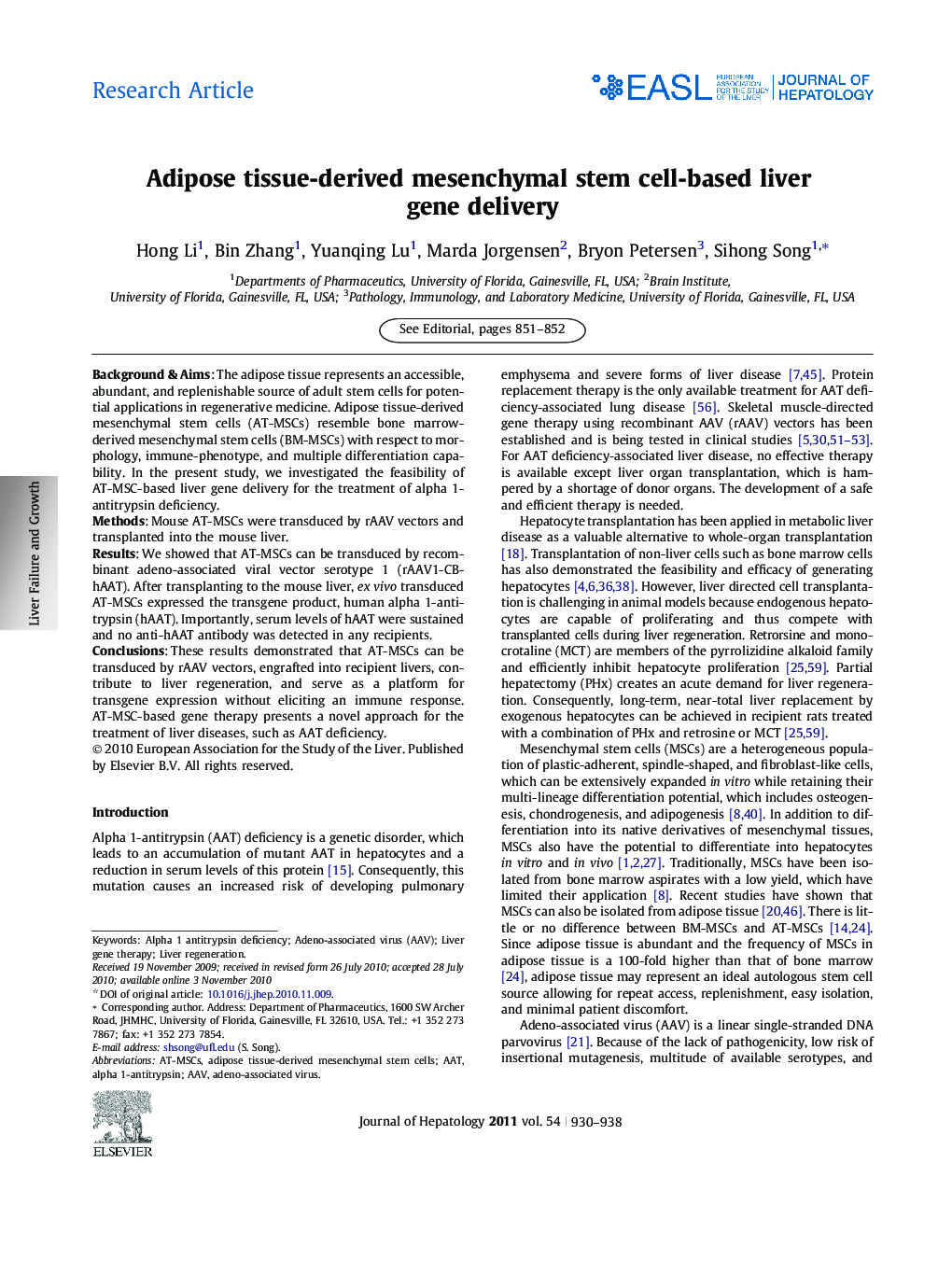| Article ID | Journal | Published Year | Pages | File Type |
|---|---|---|---|---|
| 6108311 | Journal of Hepatology | 2011 | 9 Pages |
Background & AimsThe adipose tissue represents an accessible, abundant, and replenishable source of adult stem cells for potential applications in regenerative medicine. Adipose tissue-derived mesenchymal stem cells (AT-MSCs) resemble bone marrow-derived mesenchymal stem cells (BM-MSCs) with respect to morphology, immune-phenotype, and multiple differentiation capability. In the present study, we investigated the feasibility of AT-MSC-based liver gene delivery for the treatment of alpha 1-antitrypsin deficiency.MethodsMouse AT-MSCs were transduced by rAAV vectors and transplanted into the mouse liver.ResultsWe showed that AT-MSCs can be transduced by recombinant adeno-associated viral vector serotype 1 (rAAV1-CB-hAAT). After transplanting to the mouse liver, ex vivo transduced AT-MSCs expressed the transgene product, human alpha 1-antitrypsin (hAAT). Importantly, serum levels of hAAT were sustained and no anti-hAAT antibody was detected in any recipients.ConclusionsThese results demonstrated that AT-MSCs can be transduced by rAAV vectors, engrafted into recipient livers, contribute to liver regeneration, and serve as a platform for transgene expression without eliciting an immune response. AT-MSC-based gene therapy presents a novel approach for the treatment of liver diseases, such as AAT deficiency.
